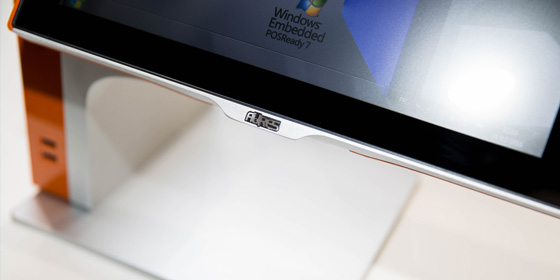By Steve HANRAHAN – Business Development Manager – AURES UK
Spending so much time locked down in our homes over the past few months has been tough for us all, but there have been some upsides.
All those jobs around the home we never seem to get round to well, we’ve had plenty of time to catch up now. For example – decorating, DIY and gardening have never been so popular. As our homes have had a revamp, many of us have also taken the opportunity to clear out the clutter we’ve collected over the years.
One consequence of this was that, when they were able to open their doors again at the beginning of July, charity shops found themselves inundated with donations, and the goods have been rolling in ever since.
This is, of course, great news for charitable organisations that rely on retail sales of donated items as crucial sources of funding, but it has also caused some logistical headaches.
Given the risks of COVID-19 transmission, all goods donated have to be quarantined before they can even be sorted and catalogued – a minimum of 72 hours has become the norm. That creates storage issues, especially for smaller charity shops where space is at a premium.
Booking systems
One of the things many charity shops have quickly adopted to help them cope with the influx is a booking-in system for donations. Rather than risk being overwhelmed by people bringing goods as and when, they are asking people to call in advance and book a slot. This enables shops to manage the flow of items. If the stock room is getting full, they can stagger new arrivals a few days in advance, by which time older donations will have gone through their quarantine and can be moved onto the shop floor, creating space.
However, this in itself is not an entirely straightforward process. Keeping track of drop-off appointments and how long goods have been in quarantine adds an extra administrative burden on top of the already unique stock control systems used by charity shops. And when space is at a premium, the question of where donations are to be received and ‘checked in’ before they are quarantined presents its own challenges.
So, what can technology do to help? We’ve been hearing from charity shop clients who, having received hundreds of bags worth of donations at a single site within days of reopening, felt they had no option but run a booking system, but were trying to administer it using pen and paper. Not surprisingly, they were finding it hard to keep track of everything, especially when it came to passing information back and forth between volunteer staff who often only work part time.
One of the benefits of modern EPOS platforms, especially cloud-based systems, is that it is easy to add extra tools and applications on a need-by-need basis. So, working with our software partners, we’ve been advising clients on how to bolster their stock control procedures with digital logs that can be used to track quarantine periods. It has also been no problem sourcing digital booking apps of the kind used in the hospitality and beauty sectors, which can also easily be connected to the charity’s website.
We’ve also been talking to our charity shop clients about the merits of adopting Mobile POS tablets/handhelds to help with this shift in how they operate. With a compact 7-inch touchscreen and weighing a shade over 400g, the AURES TMC 7000 is an adaptable, reliable unit that can be easily carried back and forth between the stock room and the shop floor by staff as they switch between tasks.
The advantage of using mobile devices like this is that it gives charity shops flexibility as to how and where they log donated items onto the system. Clearly, piling bags up next to the main till in a public area while they wait to be sorted defeats the point of quarantine. Mobile POS tablets mean staff can log everything digitally in the stock room or, if space is tight, they can even go out and do it directly from a donor’s vehicle or at the back entrance to the shop.
Once logged on the system, Mobile POS devices can also be used by staff when they need to check how long items have been quarantined for, or which are ready to be moved out for sale. There’s no need to search through written records, or go back and forth to a desktop computer screen to check – staff can quickly and accurately type in the reference on each bag into the tablet, and get the information they need there and then.




